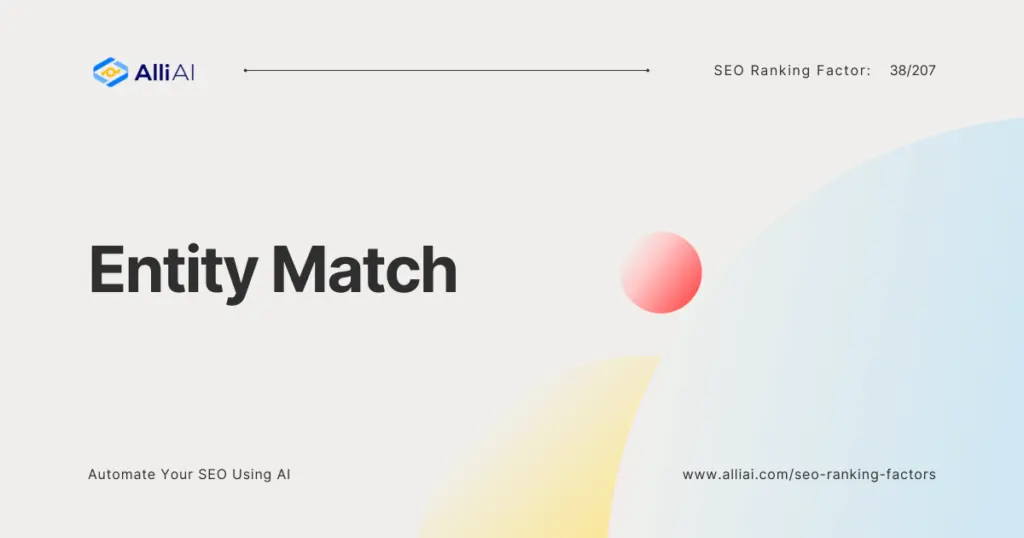What is Entity Match?
Entity Match refers to the process search engines use to associate words or phrases in a search query with specific, well-defined concepts or “entities” such as people, places, or things. These entities are stored in a knowledge graph, a vast database used by search engines to enhance their understanding of the information contained on the internet.
Consider walking into a library with the intention of finding information on “The Eiffel Tower.” Instead of sifting through every book or document that mentions Paris, a well-organized library will guide you directly to materials focused on or related to the Eiffel Tower. In this analogy, the library’s catalog system acts similarly to a search engine’s knowledge graph, with “The Eiffel Tower” being the entity. The process of matching your interest with the specific subject matter mirrors the essence of Entity Match in SEO.
Why is Entity Match important in SEO?
Entity Match plays a pivotal role in SEO because it directly influences how accurately and promptly a search engine can provide relevant results to users’ queries. By understanding and categorizing the web’s information into distinct entities, search engines like Google can quickly present the most authoritative and topical content available. For marketers and webmasters, ensuring their content is closely aligned with relevant entities means increased visibility and higher ranking in search results, paramount for driving traffic and engagement.
How Entity Match affects SEO?
Entity Match impacts SEO in several foundational ways, shaping the strategies employed by SEO professionals:
1. Content Relevance and Structuring: Content that is clearly structured and semantically related to recognizable entities is more easily understood and categorized by search engines. This improves the chances of matching with varied search queries, enhancing visibility.
2. Authority and Expertise: Websites that consistently publish detailed, accurate, and entity-rich content are more likely to be seen as authoritative sources on those topics, further boosting SEO performance.
3. Voice Search and Question Answering: With the rise of voice search and conversational AI, the ability to quickly match entities to users’ spoken queries has become increasingly important. Quality content that aligns with entity-based search intent tends to perform better in these scenarios.
Numerous studies underscore the importance of entity-based SEO strategies. For example, a study by Moz highlighted that content optimized around specific entities saw a 58% improvement in search visibility [Source: Moz]. Additionally, Google’s own research indicates that their use of the Knowledge Graph has led to a direct improvement in search query understanding by over 30%, greatly affecting the relevance of search results [Source: Google AI Blog].
FAQ
How do I optimize my content for Entity Match?
To optimize for Entity Match, ensure your content is detailed, structured, and incorporates clear, identifiable entities that align with your topic. Utilizing schema markup can also help by explicitly defining the entities present in your content to search engines.
Can Entity Matching help with local SEO?
Absolutely. For local businesses, focusing on local entities (such as landmarks, events, or local history) can significantly enhance local search visibility. Ensuring that your business is linked to these entities online, including through reviews and local directories, is key.
What tools can help identify relevant entities for my content?
Several tools can assist in finding relevant entities, including Google’s own Keyword Planner for search trends, SEMrush for keyword and topic research, and also exploring Google’s Knowledge Graph Search API for entity identification.
Conclusion
As SEO continues to adapt to the changing landscape of search technology, Entity Match stands out as a crucial factor in crafting successful SEO strategies. By understanding and leveraging entity relationships within content, marketers can significantly improve their search engine rankings and visibility. The future of SEO is undeniably entwined with the sophistication of entity recognition and matching, making it essential for any SEO professional to grasp and utilize this concept effectively.






